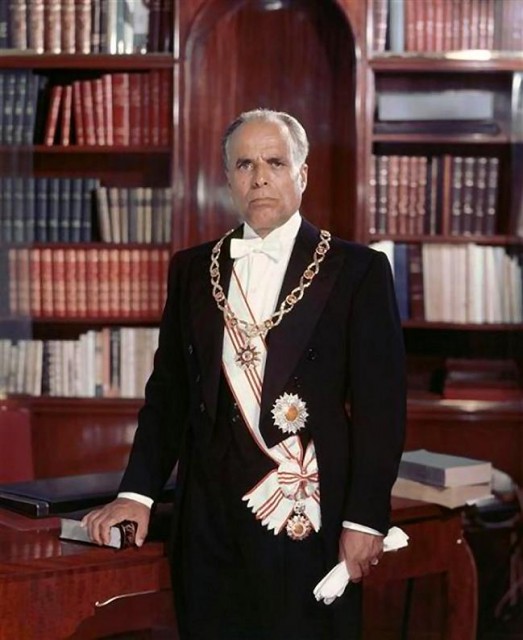Bourguiba, Habib
1903–2000
President of Tunisia
Habib Bourguiba, son of a former Tunisian army officer, grew up under French colonial rule in TUNISIA. He was a leader in his country's independence movement and became its first president in 1957.
After receiving a good education in Tunisia, young Bourguiba studied law in Paris. There he met other North Africans who were committed to independence from France. Bourguiba's interest in politics developed at this time, and on his return home he became active in the nationalist movement. In the 1930s he established the Neo-Destour party. Over the years he transformed the nationalist movement into a mass movement. He also spent some time in prison for his political activities against French colonial rule.

Faced with broad support for independence across the country, the French decided to negotiate. They agreed to self-rule for Tunisia in 1955 and full independence in 1956.
The new President Bourguiba soon embraced socialism, declaring his own Neo-Destour political party as the only one in the country. His government took over Tunisia's trade and industry and established cooperative farms. When his policies proved unpopular, he changed course somewhat. Bourguiba's calls for a settlement in the heated Arab-Israeli dispute did not win him friends among the Arab nations. In addition, his policy of discouraging traditional Muslim religious practices made him unpopular with many in his own country.
By the late 1970s, Bourguiba's government was under attack for failing to make political changes. Moreover, his poor health led to extended bouts of unexplained behavior. In 1987 his appointed successor, General Zayn al-Abidine Ben Ali, had doctors declare Bourguiba unfit to rule. The ousted president retired to live in a palace in his home village along the Tunisian coast. (See also Colonialism in Africa, Independence Movements.)